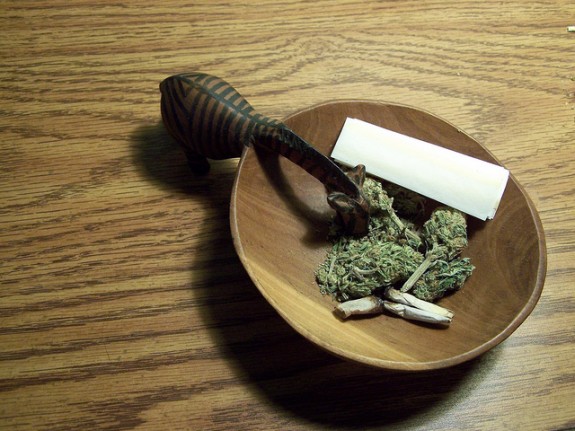
A citizen-led initiative to get medical marijuana on Florida’s 2014 ballot has some big financial backing. (Photo: Blind Nomad.)
By Ashley Lopez
Florida Center for Investigative Reporting
The initiative to get a state amendment granting the right to marijuana for medical purposes recently received a big donor.
It was reported by the Miami Herald/Tampa Bay Times in March that a push for medical marijuana in the state caught the eye of a wealthy political donor in Florida.
According to the Herald/Times:
John Morgan, a major fundraiser for President Barack Obama and the boss of former Gov. Charlie Crist, is taking the reins of a Florida medical marijuana initiative, promising to pump major money and political muscle into the popular issue.
Morgan, a top Florida trial lawyer based in Orlando, said he’s ready to tap a network of donors and his personal bank account to get the measure in front of voters in 2014 as a proposed constitutional amendment.
“I can get the money. I have the money. I will be joined by people with money who will help,” Morgan said. “I’ve been very fortunate in life, and I can make it happen.”
It could cost as much as $3.5 million to fund paid petition gatherers to collect the valid signatures of 683,149 Florida voters needed to get a measure on the ballot. An ad and absentee-ballot campaign could cost up to $10 million more.
The Florida Times-Union reports this week that Morgan has already “stroked a $100,000 check to People United for Medical Marijuana, a political committee gearing up to push a constitutional amendment legalizing medical marijuana”:
Morgan, who founded the Morgan & Morgan law firm, also serves as chairman for United for Care.
His check, along with a $50,000 donation from Barbara Stiefel, a Democratic rainmaker from Coral Gables, represent 78 percent of the $192,098 People United for Medical Marijuana has raised since its creation in 2009. The cash gave the group a quick credibility boost.
With the anticipation of logistical hurdles and well-financed opposition, the money has so far been used to hire a team of political operatives well versed in the art of Florida political combat.
However, as of the beginning of July, the petition has only 31,193 signatures, which accounts for less than 5 percent of the voter signatures they need before the end of the year. If the signatures are collected and approved on time, then the group has to work to get 60 percent of voters to vote for it in 2014.
It’s an uphill battle, and few citizen-led initiatives have gotten on ballots in the past several years. In fact, none of last year’s 11 constitutional amendments were from citizen-led initiatives like this medical marijuana drive.
According to the Times, though, there is a chance of getting 60 percent of voters in favor of the petition, even though getting it on the ballot in the first place is going to be a tough battle:
This year, Hamilton Campaigns, a Democrat-leaning pollster, sampled 600 voters and found that 61 percent supported medical marijuana. Only 37 percent opposed. Support rose to 70 percent when ballot language listed specific qualifying diseases like cancer.
The poll was financed by Ben Pollara, a Miami Beach consultant who last year ran a super PAC to support Sen. Bill Nelson’s re-election. When money was left over, Pollara paid for the marijuana poll.
Pollara, 28, says previous efforts to interest people in a medical marijuana amendment never gained traction. The poll numbers persuaded him to charge ahead anyway.
There is also the added political ramifications of getting this amendment on the 2014 ballot. Marijuana rights is an issue that is known to get a lot of Democrats to the polls. This could give a big boost to the Democratic party during a midterm election, which is when Democrats historically turn out in fewer numbers.
This is not the first push to place a medical marijuana amendment on Florida’s ballot. There have also been several bills introduced in the Florida Legislature through the years. However, the Republican-led legislature has not brought the bills to a single committee to be heard.
